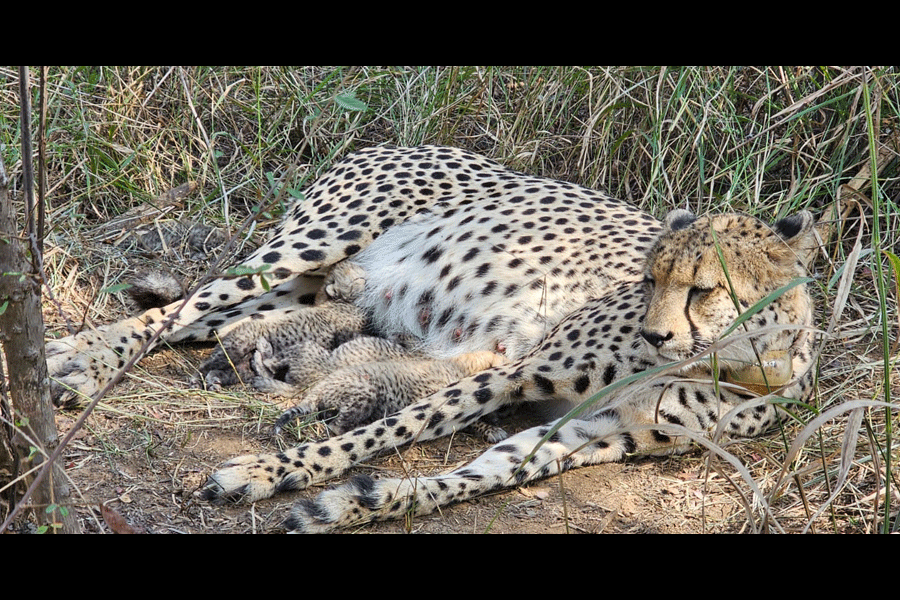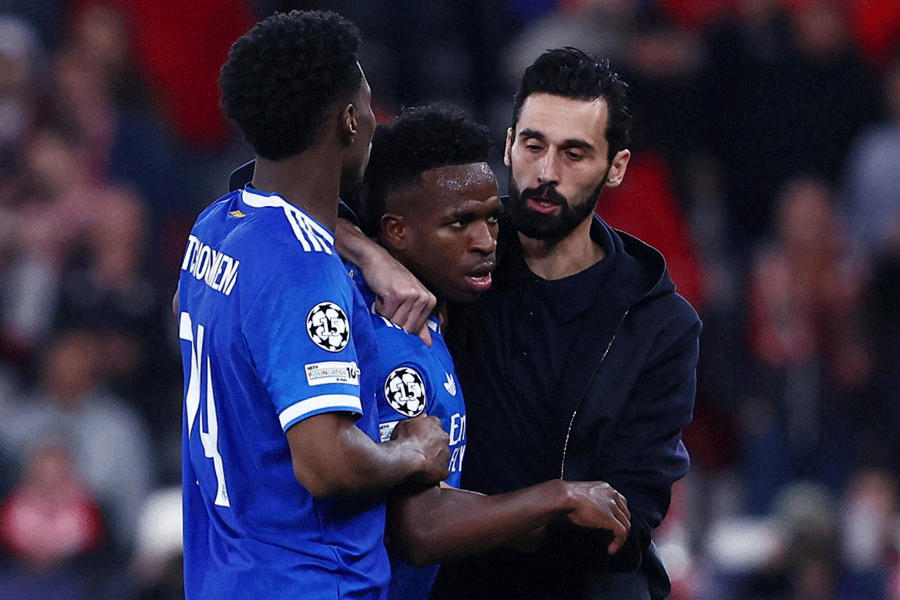Jamshedpur, Jan. 7 :
Another batch of Tata Football Academy (TFA) cadets are all ready to face the big bad world of the Indian soccer scene - the convocation is scheduled for March 3 - and the chief of TFA, Arun Ghosh, is happy with the crop that is to emerge from under his guidance.
Unwilling to single out any one from the pack, he is more concerned with the impact they may have in the national football scene in general.
While there is no doubting the fact that the TFA does produce good footballers, equally stark is the reality that a majority of their cadets fail to live up to the expectations - the latest being the case of Sheik Sanjib, who held a lot of promise but, playing for East Bengal, he has not really been able to create an impact in the Super Division.
Ghosh is of the view that after graduating from the TFA, the boys should not immediately join big clubs, where they are likely to spend most of the time on the bench. 'I have tried to tell them to initially join clubs where they will get to play the maximum number of matches. But I can only advice. They keep getting lucrative deals from big clubs and if they take it up, I cannot stop them,' he said.
He, however, added that for future batches, he has plans to introduce professional career counselling to help the cadets chose the right path.
As an answer to the age old question which has dogged TFA since its inception in 1987 - that why the academy does not sport a soccer team as well, Dr J.J. Irani, managing director Tata Steel, said: 'Its not our policy. The TFA is an academy. We produce footballers and provide them to the mainstream Indian football. Like an IIT or an IIM we nurture our cadets' talents. But after that they have to hold their own in the real world.'
Dr Irani added that Tisco has no immediate plans to expand their training centres into academies. 'We opened TFA since soccer is our national sport. And then we started the archery academy as it is a very popular sport in the local tribal areas. Though our other centres are doing well, we don't want to spread our resources too thin,' he said.
With the Super Soccer no longer a valid option, Dr Irani agreed that an under-19 international meet may be held in the future.
Asked why the Super Soccer, an event which caused such tremendous interest among football lovers of the country was stopped in 1993, S.N. Mishra, general manager, social services and sports of Tisco, said the company was asked to caugh up a huge amount - to the tune of nearly Rs 65 lakhs - by an event management group who had a contract with the All India Football Federation (AIFF). 'While the AIFF had always supported us, we really had to think twice before giving away that kind of money,' Mishra said.
With players like Carlton Chapman, Tauseef Jamal, Alok Das, Dipendu Biswas and James Singh to boast of, the TFA certainly can claim it is improving the general standard of the game in India.
Dr Irani also has plans to provide equipment and technical knowhow to children's camps and thus generate a bank from where future TFA cadets can be chosen. This, he said, will make the scouting process more systematic.
Ghosh rued the fact that nowadays individual skill is not stressed upon in most clubs and training camps. 'Now a player has to suit a system. But here we endeavour to create a complete player,' he added.
 Wednesday, 18 February 2026
Wednesday, 18 February 2026









